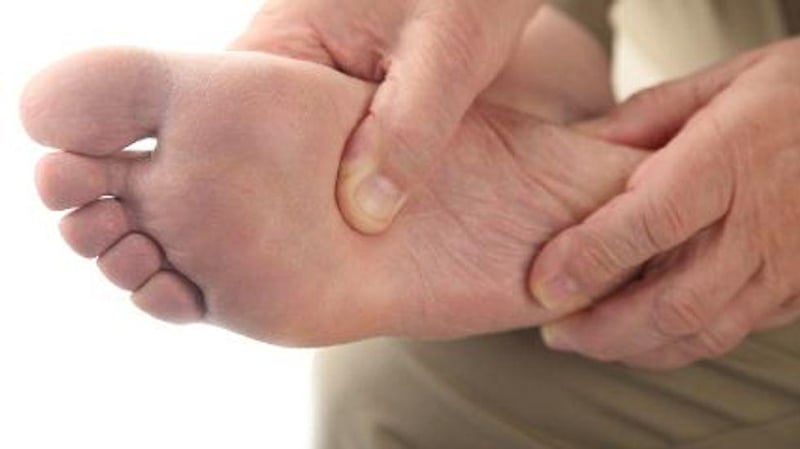Get Healthy!

- Denise Mann
- Posted October 28, 2021
Tingling, Burning in Your Feet? Common Condition May Be the Cause
The number of people experiencing numbness, pins and needles, and burning pain in their feet and toes seems to be on the rise, new research suggests, and some of these folks may be at increased risk for heart trouble.
Exactly why there has been an uptick in "small fiber neuropathy" is not fully understood yet, but it could be due to the ongoing diabetes and obesity epidemic as both conditions raise the risk for small fiber neuropathy and heart disease, explained study author Dr. Christopher Klein, a professor of neurology at the Mayo Clinic in Rochester, Minn.
"There is something diabolic about small fiber neuropathy in that it has a very strong association with heart disease and heart attacks," Klein said.
Often caused by an underlying condition such as diabetes, small fiber neuropathy occurs when the small fibers of the peripheral nervous system become damaged. It can sometimes progress to large fiber neuropathy, which results in weakness, balance issues and lack of coordination.
"The pain is quite bad, but the good news is that for most folks, the average worsening per year was nominal, and they don't develop any major disability," Klein said. Despite this, some people with small fiber neuropathy are at risk for heart problems.
Diabetes does increase the risk for heart attack, but there's likely more to the story, he said. It could be an underlying inflammation or high levels of dangerous blood fats called triglycerides that increase heart risks in these folks.
For the study, the researchers compared medical records from 94 people with the condition and 282 people without it. The investigators followed these individuals for about six years to learn as much as they could about small fiber neuropathy and how it progresses.
Small fiber neuropathy occurs in 13.3 of every 100,000 people, and the rate increased during the study period. These individuals were also more likely to have insomnia and/or take opioids to relieve their burning pain.
Folks with small fiber neuropathy are more likely to be obese than their counterparts without this condition, and about 50% of people with neuropathy had diabetes, compared to 22% of those without it, the findings showed.
People with the nerve condition were also more likely to have heart attacks, the study found. Close to 50% of people with small fiber neuropathy had a heart attack during the study period.
Given this increased risk, some of these individuals may need more aggressive screening for heart disease, Klein said.
The study was published online Oct. 27 in Neurology.
"Doctors, and especially neurologists, are more aware of this condition than they were 10 years ago," said Dr. Brian Callaghan, an associate professor of neurology at the University of Michigan Medical School in Ann Arbor. Callaghan co-wrote an editorial accompanying the new study.
Still, "doctors often forget to ask about these symptoms, so patients should definitely make their doctors aware," he said. If the small fiber neuropathy is linked to diabetes or obesity, treating these conditions will make a difference in overall health and well-being.
"We can treat the underlying cause in some cases and the pain," Callaghan said. Neuropathic pain treatments include medications, topicals and behavioral interventions.
More information
Learn more about small fiber neuropathy at the U.S. National Library of Medicine.
SOURCES: Christopher Klein, MD, professor, neurology, Mayo Clinic, Rochester, Minn.; Brian Callaghan, MD, associate professor, neurology, University of Michigan Medical School, Ann Arbor; Neurology, Oct. 27, 2021, online







